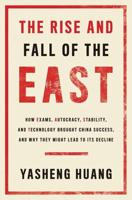Publisher's Synopsis
The aim of this book is to examine the changing nature of the European social model and its capacity to deal with both domestic and external challenges in the early 21st Century. A popular view is that West European welfare states are crumbling under pressure from external competition, while the globalization of production and finance, combined with the policy constraints of EMU, have all reduced the capacity of the state for implementing corrective remedies. More and more frequently, efficiency and equality, growth and redistribution, competitiveness and solidarity are referred to as polar opposites that can only thrive at each other's expenses. The argument in this report is much more nuanced - and optimistic. The authors counter the argument that welfare states are crumbling under external and domestically-generated pressures, they correct the view that national states are increasingly impotent to deal with the range of challenges that confront them, and they emphasize the importance of appreciating the different problems and potential for reform of Europe's clusters of welfare states for accurate analysis, comparison, and policy prescription. The scope for policy innovation lies between the twin constraints of preserving social justice objectives and solving those fiscal and policy failure problems that undermine economic imperatives - at both the macro and the micro level. Yet there is still scope for much innovation in the policy mix in reconciling these objectives. Moving forward with this agenda requires considerable imagination in defining that policy mix as well as substantial investment in new institutional arrangements. As this book stresses, the search for new solutions can be greatly helped by supranational mechanisms of co-ordination and evaluation, as well as by processes of mutual observation and learning. If European societies wish to reset themselves on a course of just growth, they will have not only to re-adapt their welfare institutions to the new context, but must also increase their adaptability as such, enhancing their social and policy learning capabilities and inaugurating novel institutional combinations between security and flexibility.












